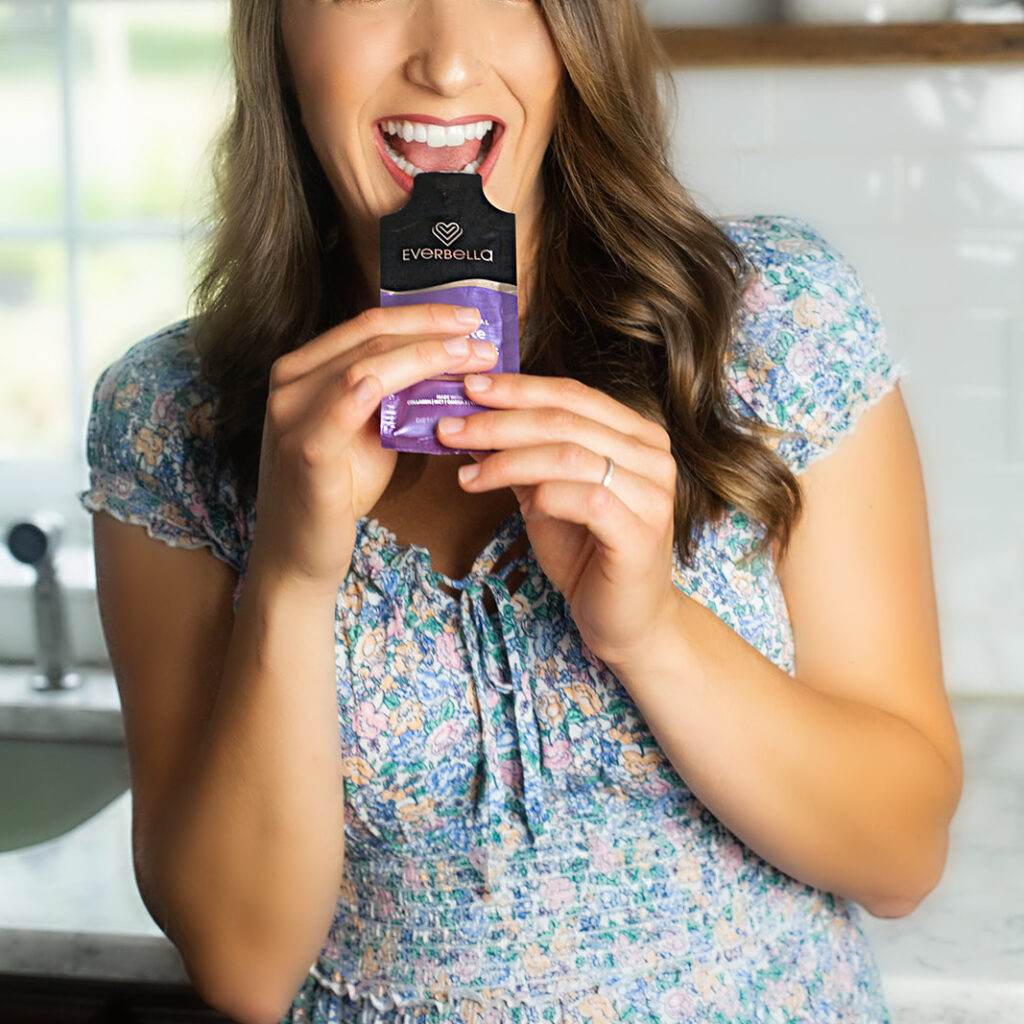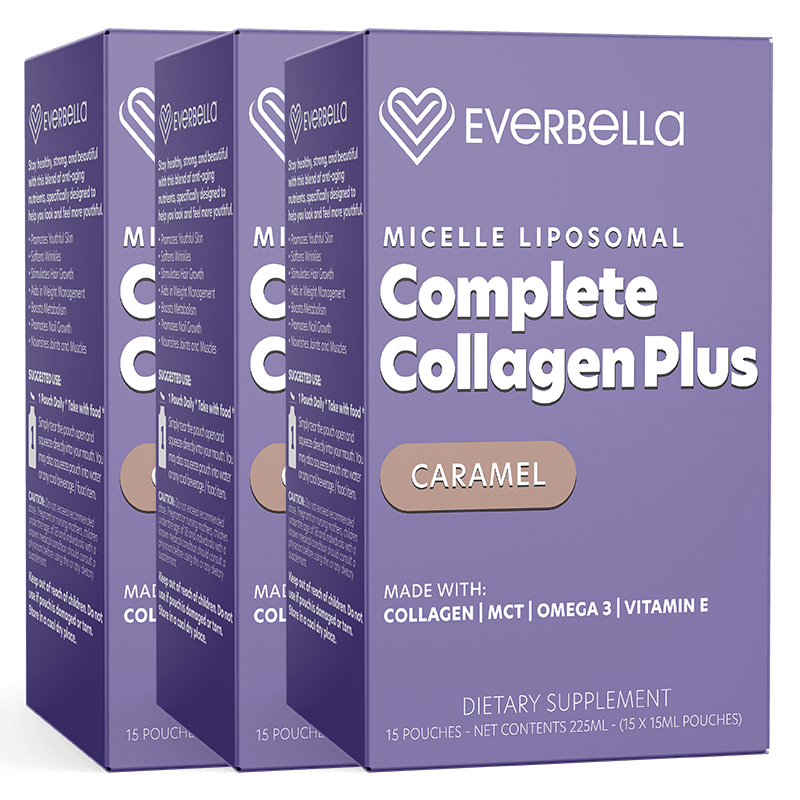Menopause is a normal biological process that happens to women following their last period. For most, this phase begins between ages 45 and 55. It usually lasts about seven years, but can last as long as 14 years. The duration can depend on lifestyle factors such as smoking, diet, or at which age it begins.
Among other things, menopause can bring some noticeable changes to your skin that are, unfortunately, negative. This is largely due to a plummet in collagen during this stage.
However, you can lessen the effects of these changes with the right care. Below, I’ll go over eight changes you may see in your skin through menopause, along with what you can do to help!
Whether you’re experiencing menopause, will soon, have in the past, or never will, these tips can still help you take the best care of your skin!
1. Age spots and sun damage
Years of sun exposure with little protection will start to show once menopause sets in. Age spots and larger areas of darker skin can appear anywhere on your body, including your face. At this time, skin cancer and pre-cancerous skin growths can also become more common.
What you can do:
- Apply sunscreen before going outdoors. This will help protect your skin from harmful UV rays when it’s at its most vulnerable. Cover anywhere that clothing won’t cover with a quality sunscreen. This can help fade age spots, prevent new spots from forming, and reduce your risk of skin cancer.
- Try home remedies. There are plenty of natural ingredients you can rub on age spots to help reduce their prevalence. These include lemon juice, potatoes, cucumbers, honey, and more.
- Get screened for skin cancer. Skin cancer is typically treatable and non life threatening if caught early. Your risk increases both with age and menopause. So be sure to get checked for skin cancer regularly if possible, and check yourself for any signs.
- See a dermatologist. If you feel your case is worse than others or you have a separate health issue that makes your age spots and UV damage more challenging, book an appointment to see a dermatologist. They’ll be able to recommend both at-home treatments and clinical procedures that can help your skin look and be at its best.
2. Bruising easily
Leading up to and during menopause, the body makes less hormones, including estrogen. This hormone is crucial in maintaining dermal health and offers many anti-aging characteristics.
As such, when menopause begins and estrogen levels drop, the skin becomes thinner and more prone to bruising.
What you can do:
- Be careful. Avoid bumping into things by arranging furniture so it’s not in the way, reducing clutter, and removing rugs or any other items that could cause tripping.
- Take stock of which medications you’re taking. Exposure to certain medications, such as long-term steroids or blood thinners, can make people more susceptible to bruising, so avoiding these might help. However, always consult with a physician prior to stopping any.
- Cover up. Wear long pants and sleeves and protective clothing to help minimize bruising, especially when you think there could be a higher chance of brusing.
- Moisturize. Moisturizing the skin can help prevent it from getting dry, which makes it more prone to breaking open.
- Apply sunscreen when necessary. Use sunscreen with an SPF greater than 30. UV damage will only make your skin thinner.
- Increase collagen. Studies show that about 30% of your collagen will be lost within just the first five years of menopause. Collagen is the protein which makes your skin strong, thick, and elastic. A quality, highly absorbable collagen such as EverBella’s Complete Collagen Plus can make a huge difference.
3. Dryness
During menopause, your skin loses some of its ability to retain water. As such, the skin can get quite dry, especially during times that are known to dry out skin, such as winter. Dry skin is more likely to crack, get bruised, and lead to infection.
What you can do:
- Wash with a mild cleanser instead of soap. For mature skin, soap can be too drying. And you definitely want to skip the deodorant bars.
- Apply moisturizer after bathing and throughout the day when your skin feels dry. It’s important to take control of your skin’s moisture by using a quality product on your skin throughout the day, and especially after showering. A moisturizer with hyaluronic acid, vitamin C, and/or glycerin can be especially helpful.
- Stay hydrated. Drinking plenty of water throughout the day is crucial in keeping your skin well hydrated. Aim for at least eight glasses a day.
- Increase your collagen intake. Collagen is well known for its ability to improve the hydration of the skin.
4. Facial hair
Due to a change in hormones, through menopause you may also notice somthing else you’ve never experienced before: facial hair. Hair under the chin, along the jawline, or above the lip are all common throughout menopause.
What can you do:
- Waxing. This may be the most simple option, however, as mentioned above, your skin may become thin during menopause and waxing can cause tearing, bleeding, and skin damage. As such, you may want to explore other options.
- See your dermatologist. A board-certified dermatologist can tell you what you can use to remove unwanted hair, since they’ll be able to best determine the state of your skin and what approach will cause the least amount of harm. Some options include laser hair removal and a prescription hair-reduction cream.
5. Jowls, slack skin, and wrinkles
As mentioned previously, your skin quickly loses its collagen throughout menopause. As collagen diminishes, our skin loses its firmness and begins to sag. Jowls appear, permanent lines run from the tip of the nose to the corners of the mouth, and wrinkles that used to appear only with a smile or frown become visible all the time.
Later, the tip of the nose dips, you may see pouches under your eyes, along with large pores. This is due to the loss of collagen which used to offer skin firmness.
What you can do:
Protect your skin from the sun. This can reduce visible wrinkles and prevent new wrinkles.
Take a collagen supplement. Your skin’s best friend is collagen. It’s literally what makes most of it up and holds it together. Maintaining healthy collagen levels is key in reducing wrinkles and sagging.
6. Pimples and acne
Not just for teenagers anymore – with menopause you may notice an increase in pimples. This is also due to a change in hormones.
What you can do:
Unfortunately, most acne creams on the market are designed for teenagers, and these will be too harsh. Because of this, you’ll have to look for other ways to reduce and treat any pimples that may arise.
- Avoid acne products that dry your skin. Drying your skin can worsen acne.
- Tea tree oil. Tea tree oil is a natural antibacterial and anti-inflammatory, which means that it might kill P. acnes, the bacteria that causes acne.
- Other home remedies. There are plenty of home remedies you can test out to see how they work for you. These include aloe vera, honey, green tea (internal or external), coconut oil, and more.
- Stay hydrated. When the skin is dry, it can become irritated or damaged, which can make acne worse. Staying hydrated also ensures new skin cells develop correctly as sores heal.
7. Rashes and easily irritated skin
Around 50, the pH level of our skin changes. With this change, skin becomes more sensitive, and women are more likely to develop rashes and easily irritated skin. If you have an existing skin condition, such as eczema or rosacea, this could worsen.
What you can do:
- Use a fragrance-free moisturizer. This can reduce irritation.
Taking care of your skin
Menopause or no menopause, our collagen levels naturally deplete as we age. As you can see, this can have serious effects on the health of our skin.
Collagen can be difficult to get through food sources and most powders are next to useless due to collagen’s notoriously low absorption rate. That’s why I created Complete Collagen Plus. Not only is it designed to work thanks to a highly sophisticated, patented delivery technology, it’s made with care right here in the USA.
I want you to be able to try out Complete Collagen Plus yourself without worrying about a thing.
That’s what right now, you can try Complete Collagen Plus for 6 months. And if you find it’s not right for you – even if you’ve opened and emptied all of your bottles – simply send me back your order for a FULL refund.
I’m THAT confident that you’ll notice a difference with Complete Collagen Plus.
Are you ready to see what that difference is?
Click here to see for yourself!



